Blog
Advice and expertise from AM, and special guest posts by leading archivists, academics and librarians from around the world.
-
TitleDescriptionDate
-
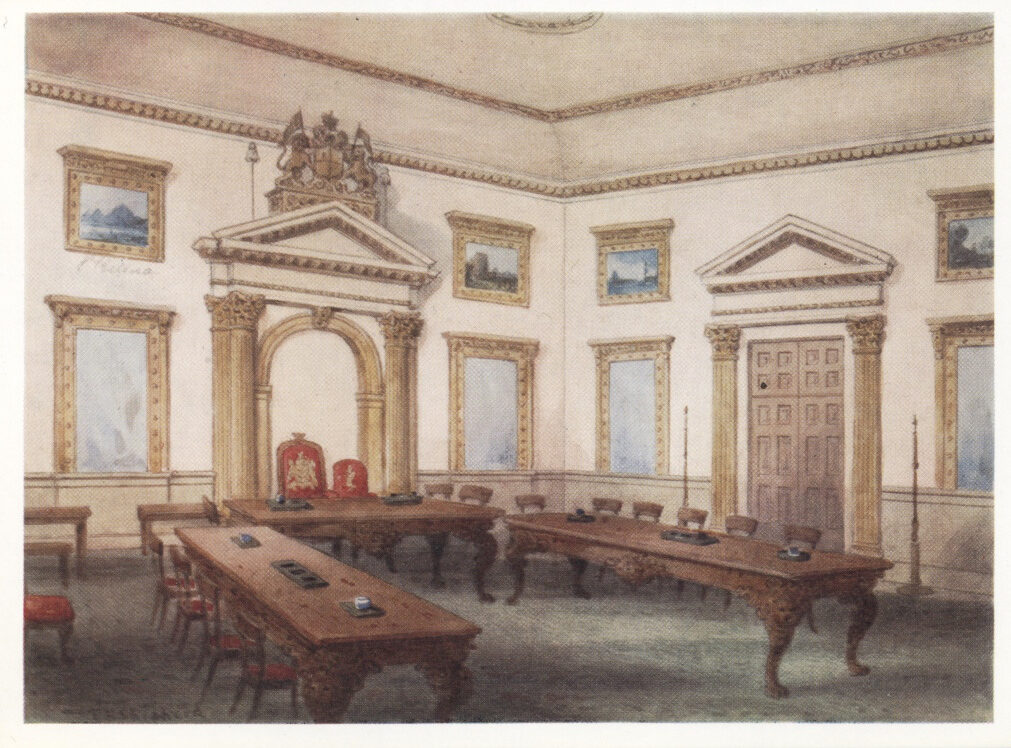 Human stories from the East India CompanyYou might expect the minutes of the meetings of the Court of Directors to be rather dull administrative records. But they are in fact the source of many fascinating human stories. The Directors were responsible for a mighty organisation, but they always made time to consider the requests of individuals who approached them for help, no matter where they fitted into the social hierarchy.
Human stories from the East India CompanyYou might expect the minutes of the meetings of the Court of Directors to be rather dull administrative records. But they are in fact the source of many fascinating human stories. The Directors were responsible for a mighty organisation, but they always made time to consider the requests of individuals who approached them for help, no matter where they fitted into the social hierarchy. -
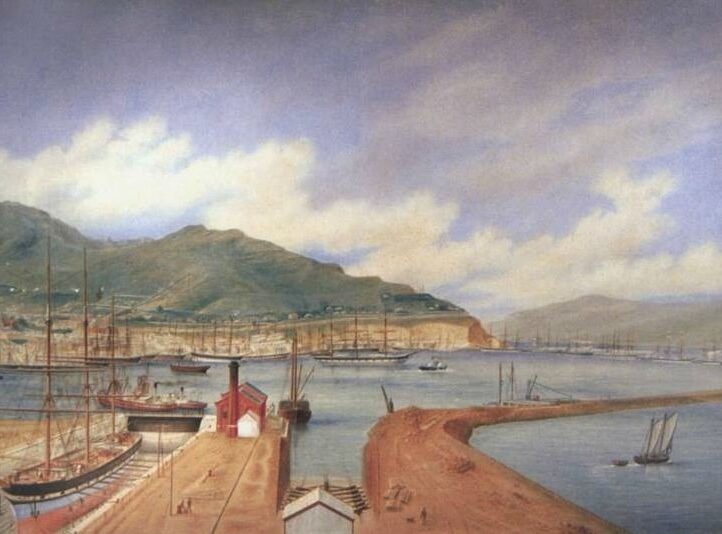 ‘Oh Matron’: A right old Carry On aboard the Cardigan Castle, Christmas, 1876.What do you get if you mix a drunk Matron, a dummy sailor, and a foghorn? No this isn’t another awful Christmas cracker joke, but it is the wonderful combination of elements that make up Sarah Stephens’ very humorous account of Christmas Day aboard the Cardigan Castle emigrant ship. Found within the Migration To New Worlds Collection, Stephens’ account of her voyage to New Zealand in 1876 not only highlights the dangers and difficulties endured by emigrants aboard ship, but gives a unique account of Christmas Day that is both compelling and full of festive fun.
‘Oh Matron’: A right old Carry On aboard the Cardigan Castle, Christmas, 1876.What do you get if you mix a drunk Matron, a dummy sailor, and a foghorn? No this isn’t another awful Christmas cracker joke, but it is the wonderful combination of elements that make up Sarah Stephens’ very humorous account of Christmas Day aboard the Cardigan Castle emigrant ship. Found within the Migration To New Worlds Collection, Stephens’ account of her voyage to New Zealand in 1876 not only highlights the dangers and difficulties endured by emigrants aboard ship, but gives a unique account of Christmas Day that is both compelling and full of festive fun. -
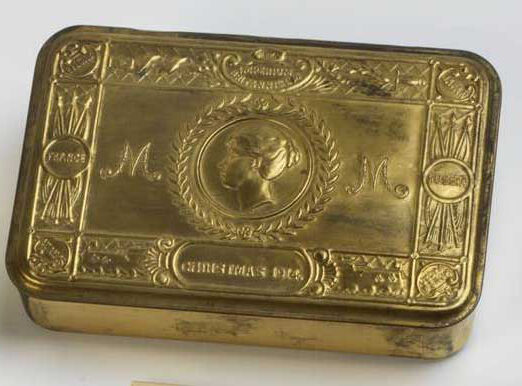 Christmas on the Front Line
Christmas on the Front LineIt’s difficult to imagine what Christmas day was like in 1914 for soldiers on the front lines in France, Belgium and Germany. We know that the horrors of war didn’t stop, that fighting continued in many parts and that the unofficial truces were opportunities to bury the dead. But we’ve also heard stories of carols sung across the trenches and football games, and we know that during that Christmas – and Christmases for years afterward – soldiers received a small but very special gift.
-
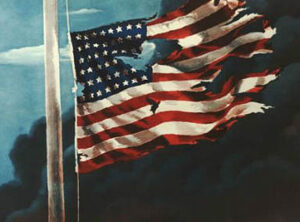 A date which will live in infamy
A date which will live in infamyPresident Roosevelt famously declared December 7th 1941 ‘a date which will live in infamy’. As war raged across Europe, and America - the ‘giant’ - slept on, imperialist forces in Japan plotted a devastating strike on Pearl Harbor. Today marks the 77th anniversary of the deadly attack on that sleepy Hawaiian naval base, an event that would ultimately turn the tide of the Second World War.
-
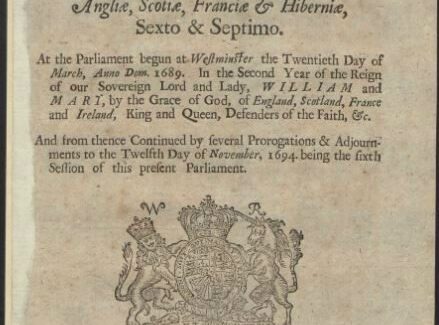 Leisler’s Rebellion: New York’s (not so) Glorious Revolution: A special guest blog by Sophie H Jones
Leisler’s Rebellion: New York’s (not so) Glorious Revolution: A special guest blog by Sophie H Jones1688: The Glorious Revolution. For many of us, these words bring to mind the overthrow of the tyrannical Catholic King James II and the happy arrival of William of Orange and his Queen, Mary. What few of us immediately consider is the impact of this change in regime upon far-flung colonies across the Atlantic.
-
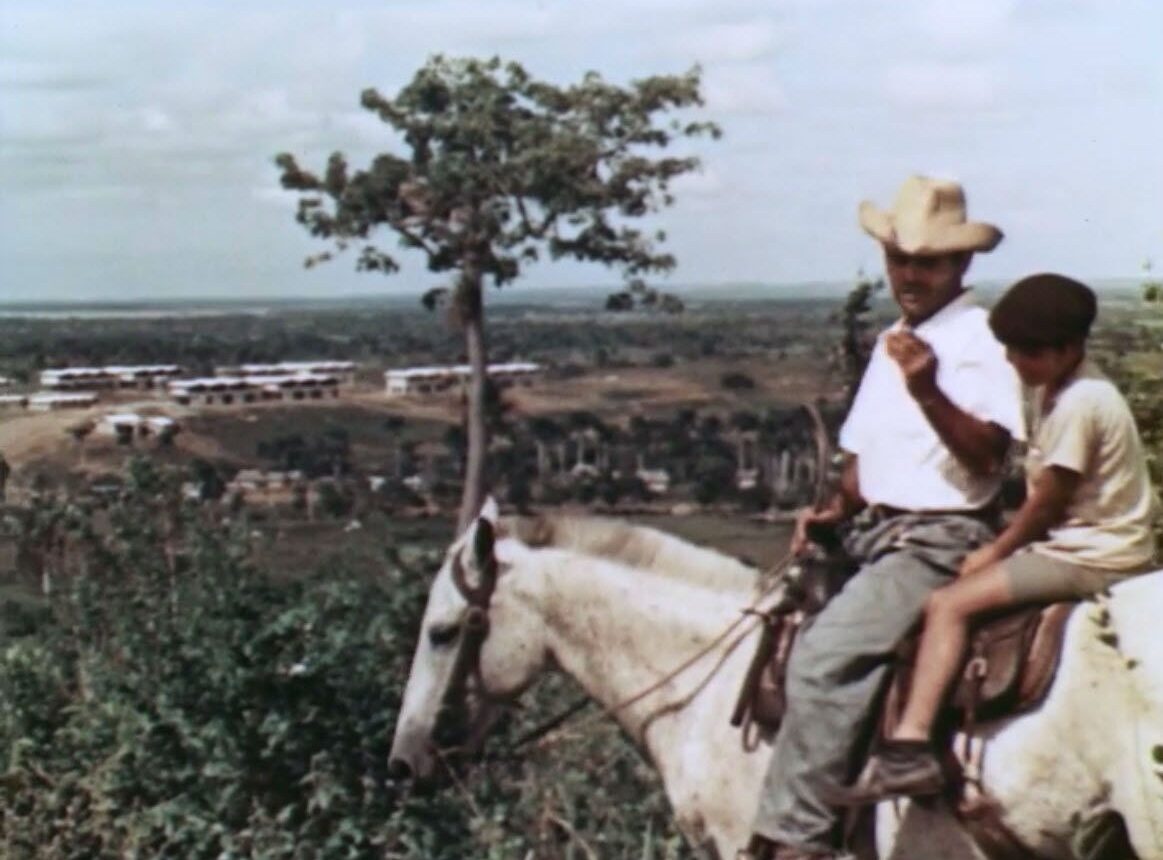 "Our country, or death": Castro's Revolution on Film
"Our country, or death": Castro's Revolution on FilmWith last week’s news of the death of Fidel Castro and Cuba’s nine days of mourning underway, I thought it would be fitting to explore Adam Matthew’s upcoming Socialism on Film resource to discover how the divisive leader and his legacy have been captured on film. I soon found my answer in the 1961 documentary Island Ablaze, a powerful propaganda film which tells the story of the Cuban revolution and explores its implications for Cuba’s future generations.
-
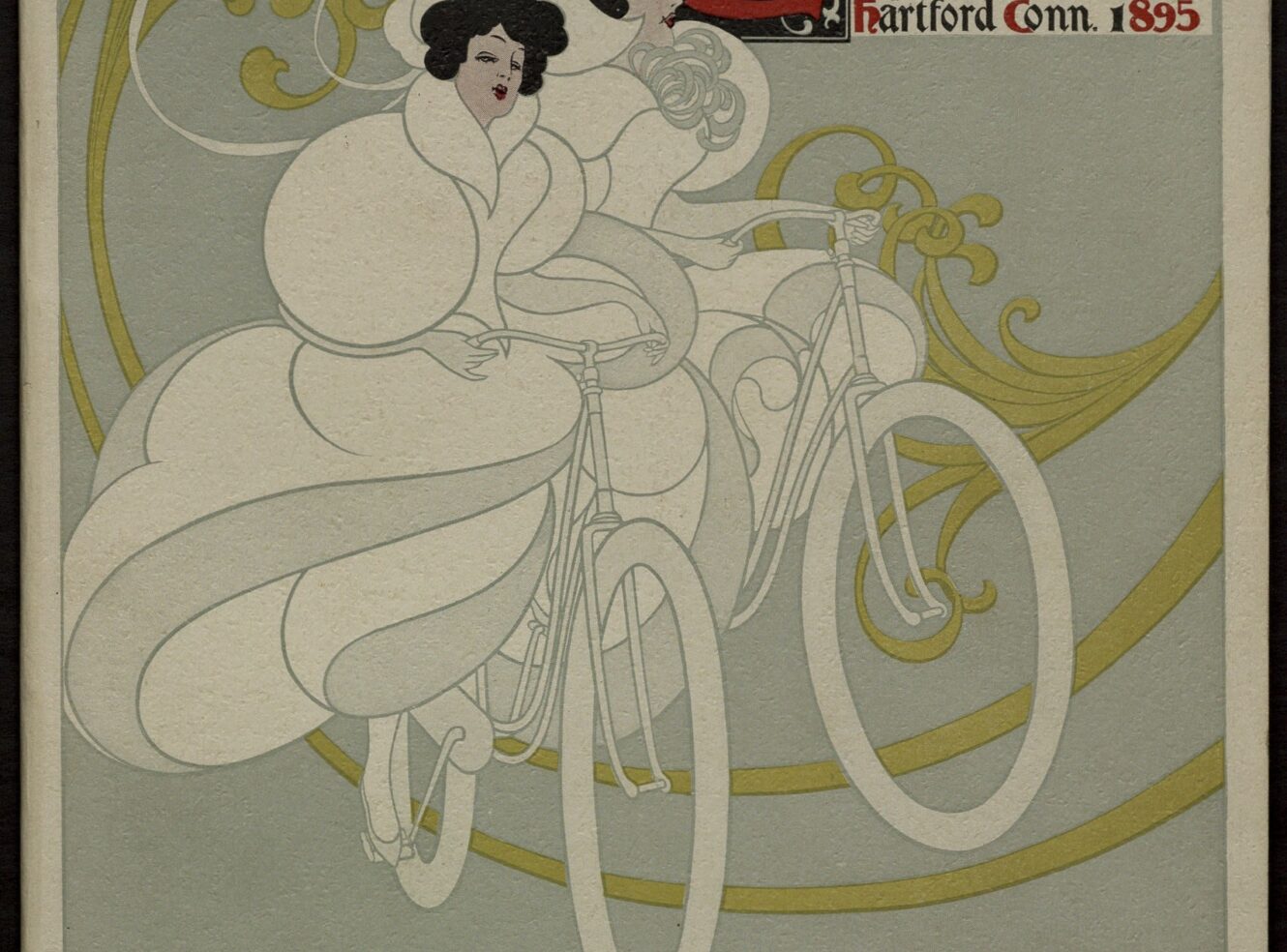 The Freedom Machine
The Freedom MachineDespite economic depression the 1890s had an air of optimism and progression that led social commenters to name it the “Gay Nineties”. One advance that captured both the enthusiasm and the technological advancement of this era was the booming popularity of bicycles.
-
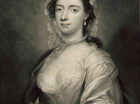 Cross-Dressing Actresses: Into the Breeches: A Special Guest Blog by Felicity Nussbaum
Cross-Dressing Actresses: Into the Breeches: A Special Guest Blog by Felicity NussbaumFelicity Nussbaum, Distinguished Research Professor of English at the University of California, Los Angeles and Editorial Board member for Eighteenth Century Drama: Censorship, Society and the Stage, discusses female cross-dressing in eighteenth-century theatre.
-
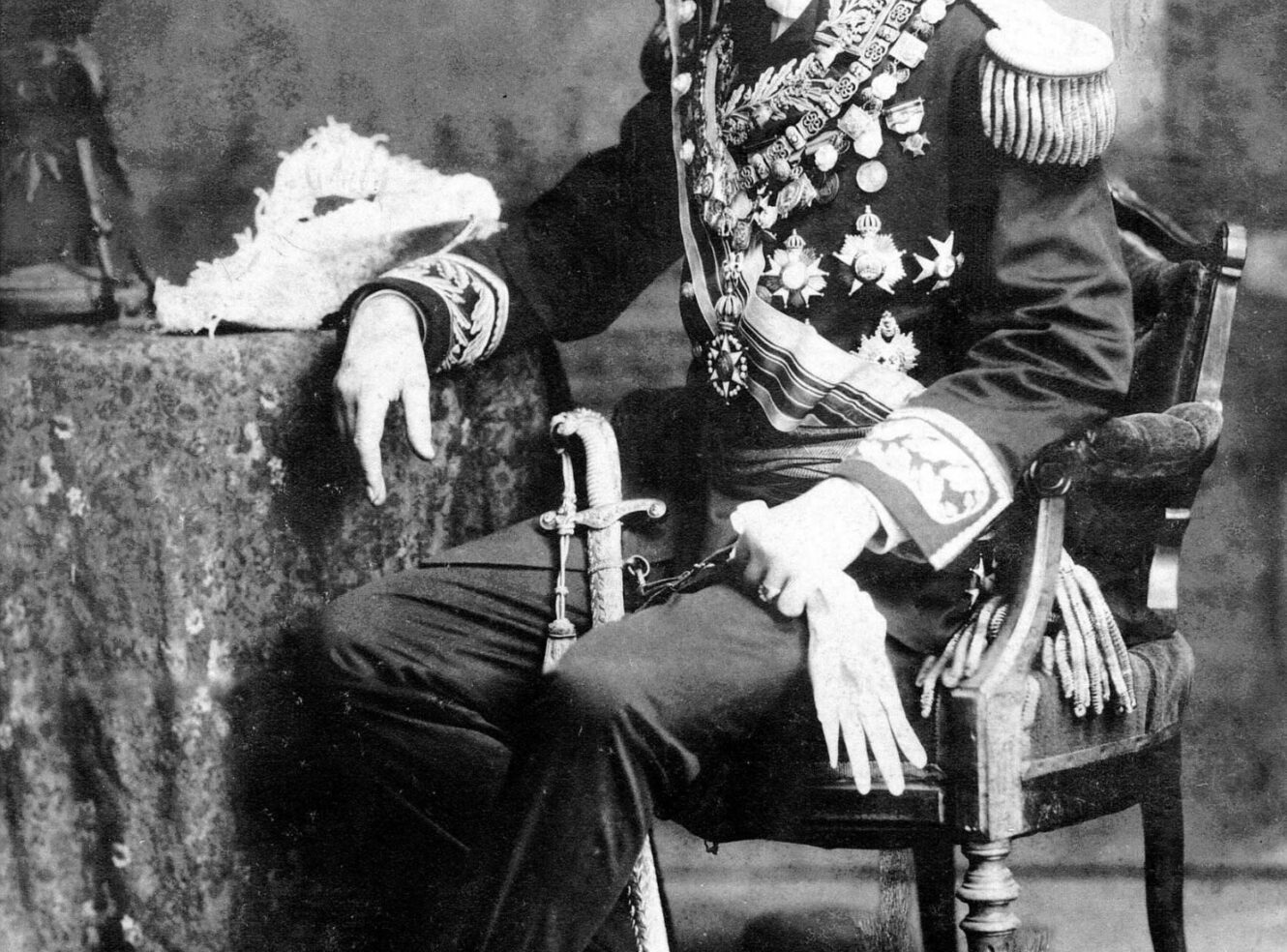 Gaston d’Orléans: Prince, Refugee and General
Gaston d’Orléans: Prince, Refugee and GeneralThe Paraguayan War generated significant interest in Europe, and the Foreign Office in London compiled much of the traffic it received into a printed file, for easy future reference. This volume, digitized as part of Adam Matthew Digital’s Confidential Print: Latin America 1833-1969, contains some fascinating insights into the Comte d’Eu’s role in the conflict – and indeed, British estimations of the Prince.
-
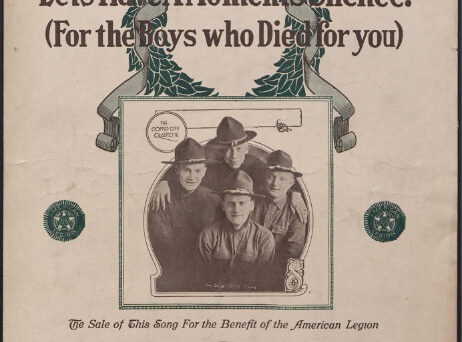 Let's Have a Moments Silence
Let's Have a Moments Silence“Let’s have a moments silence,– Let’s say a pray’r or two,– Let’s give a moment of our time for the boys who fought for you;– Let’s have a moments sorrow,– Let’s pray because it’s thru, Let’s have a moments silence, For the boys who died for you.”
-
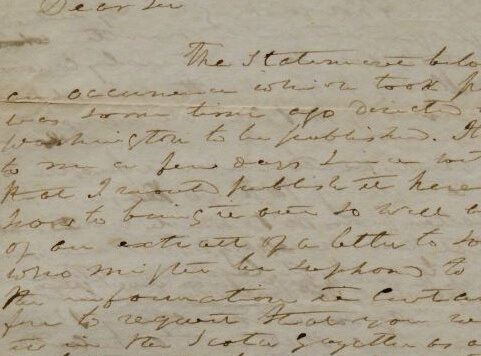 The Dodgy US Presidential Election of 1824
The Dodgy US Presidential Election of 1824The 2016 contest for the US presidency, fought between Hilary Clinton and Donald Trump, is commonly held to be one of the most bitter and acrimonious American political campaigns in their history. Though as you can imagine, bitter and acrimonious US presidential elections are not in the least bit new in American history. Here’s one.
-
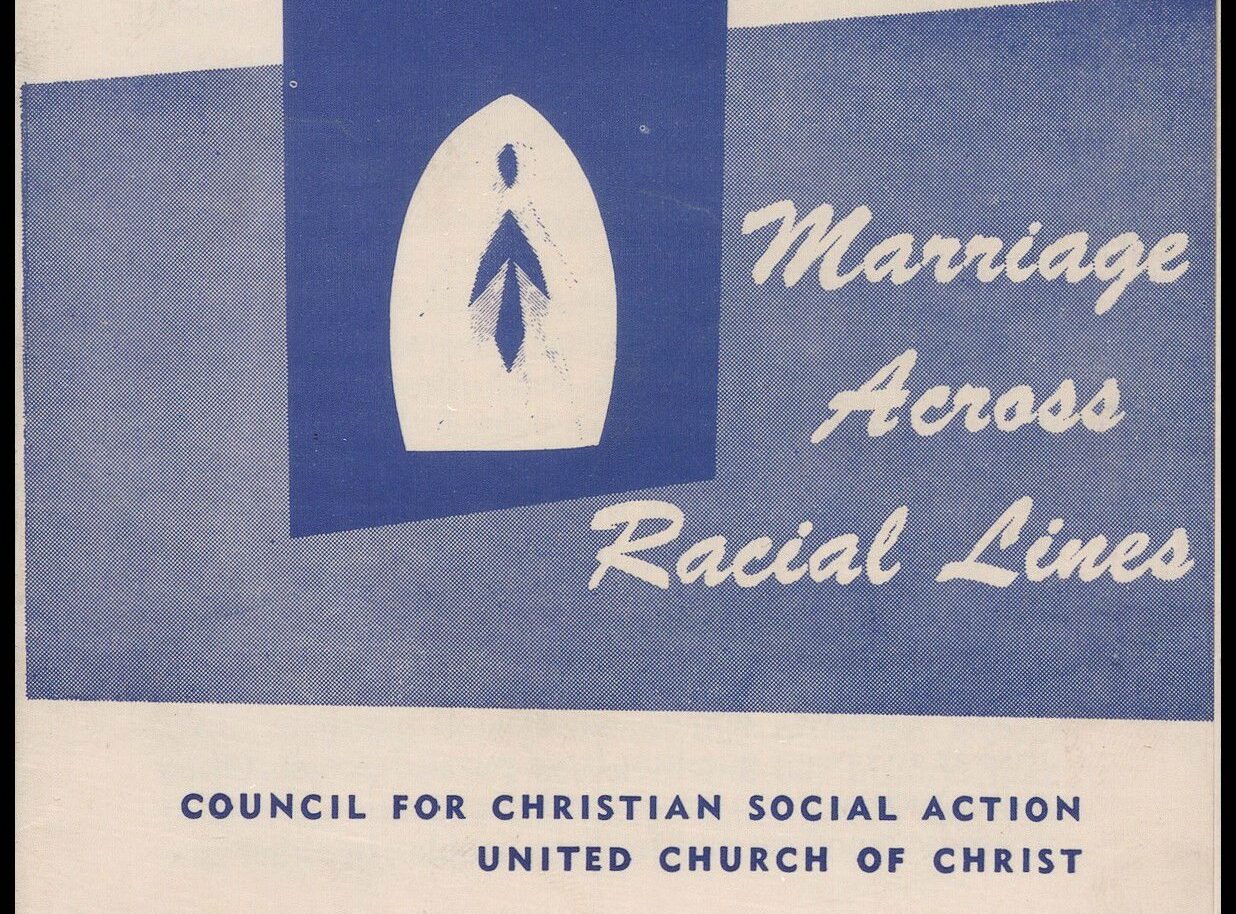 Fighting for the Right to Love
Fighting for the Right to LoveThis week sees the release in US cinemas of Jeff Nichols’ film Loving, a dramatization of the story of interracial couple Mildred and Richard Loving whose marriage lead to their arrest under anti-miscegenation laws in Virginia in 1958. With the help of the American Civil Liberties Union, they appealed against the conviction and the case went to the US Supreme Court in 1967 where, in a ground-breaking decision, the convictions were overturned and all remaining anti-miscegenation laws in US states were rendered unconstitutional.
-
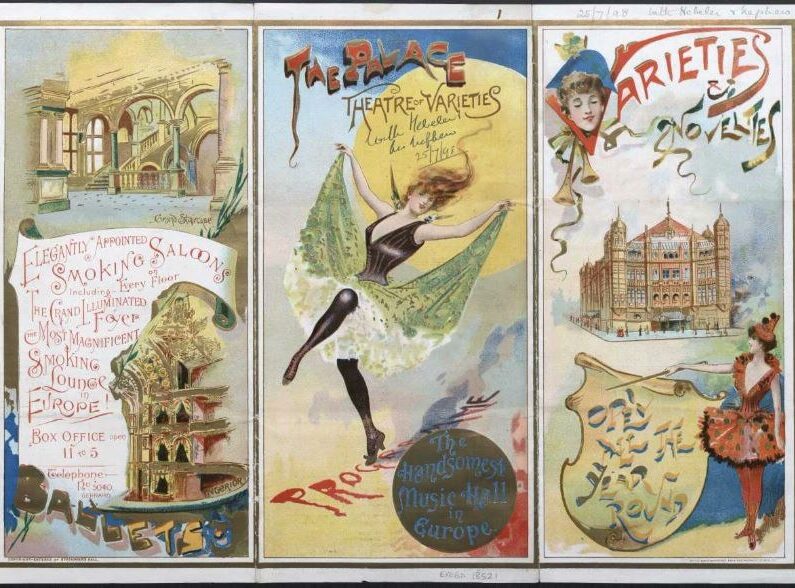 Programmes 1895-1920 – Reaching the Audiences of The Past: A Special Guest Blog by Dr. Phil Wickham
Programmes 1895-1920 – Reaching the Audiences of The Past: A Special Guest Blog by Dr. Phil WickhamExamining the material culture of the past can help us to understand how audiences of that time might have felt about what they saw, diminishing our assumptions that we bring from the present day. Some of the most fruitful sources for this research are programmes from popular venues. At The Bill Douglas Cinema Museum at the University of Exeter we have 4000 cinema programmes, including fascinating examples from the beginnings of cinema history between 1896 and 1920.
-
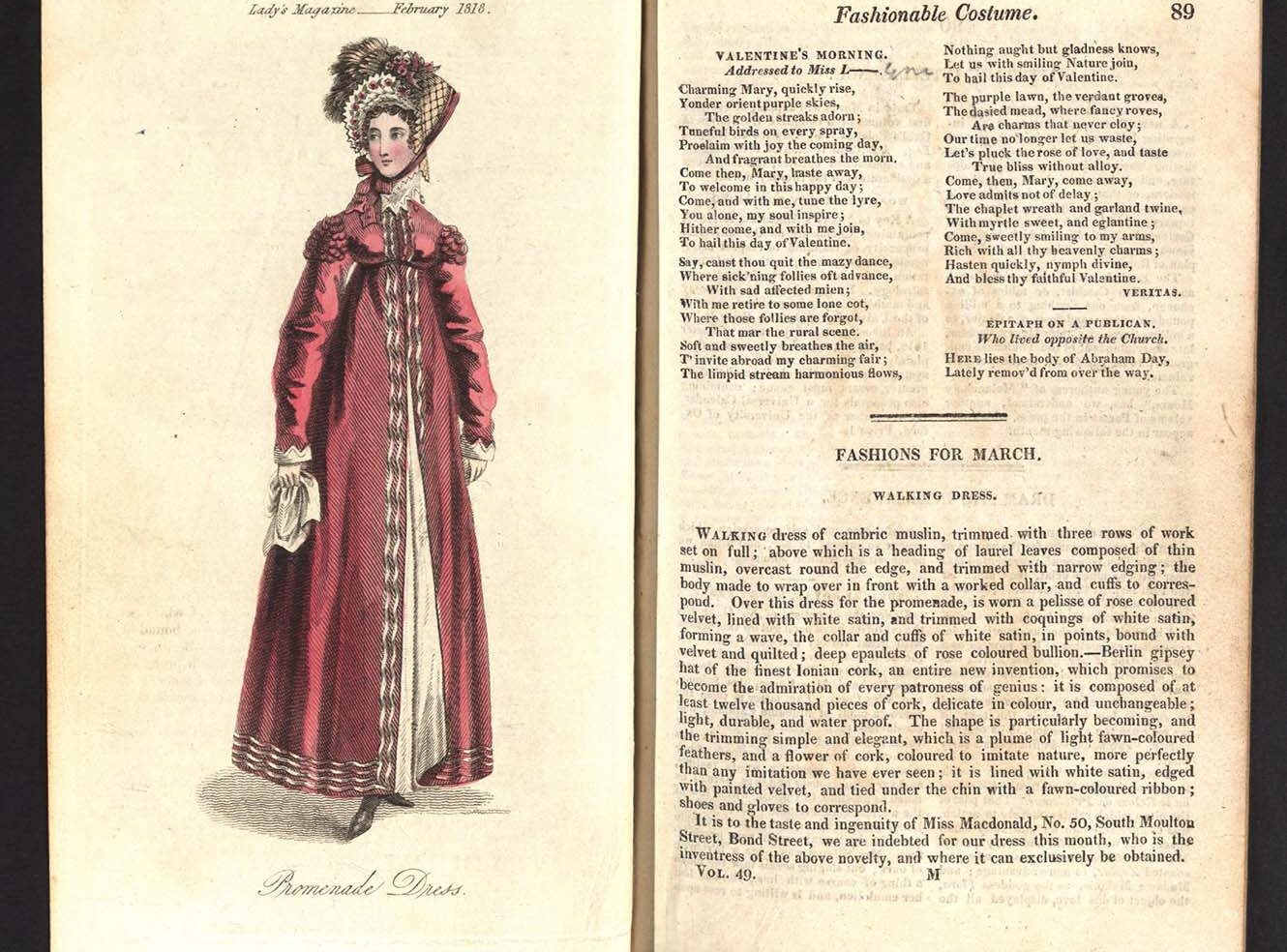 The Lady’s Magazine: A Special Guest Blog by Jennie Batchelor
The Lady’s Magazine: A Special Guest Blog by Jennie BatchelorI started working on The Lady’s Magazine: or Entertaining Companion for the Fair Sex (1770-1832) in the last century. 1999 wasn’t really all that long ago, I suppose, but sometimes I feel as if I have been working on the magazine forever. I say this with no sense of tedium. For much of the past fifteen years, I have been happily immersed in the embarrassment of generic riches the Lady’s Magazine presented to its loyal following of thousands of readers every month.
-
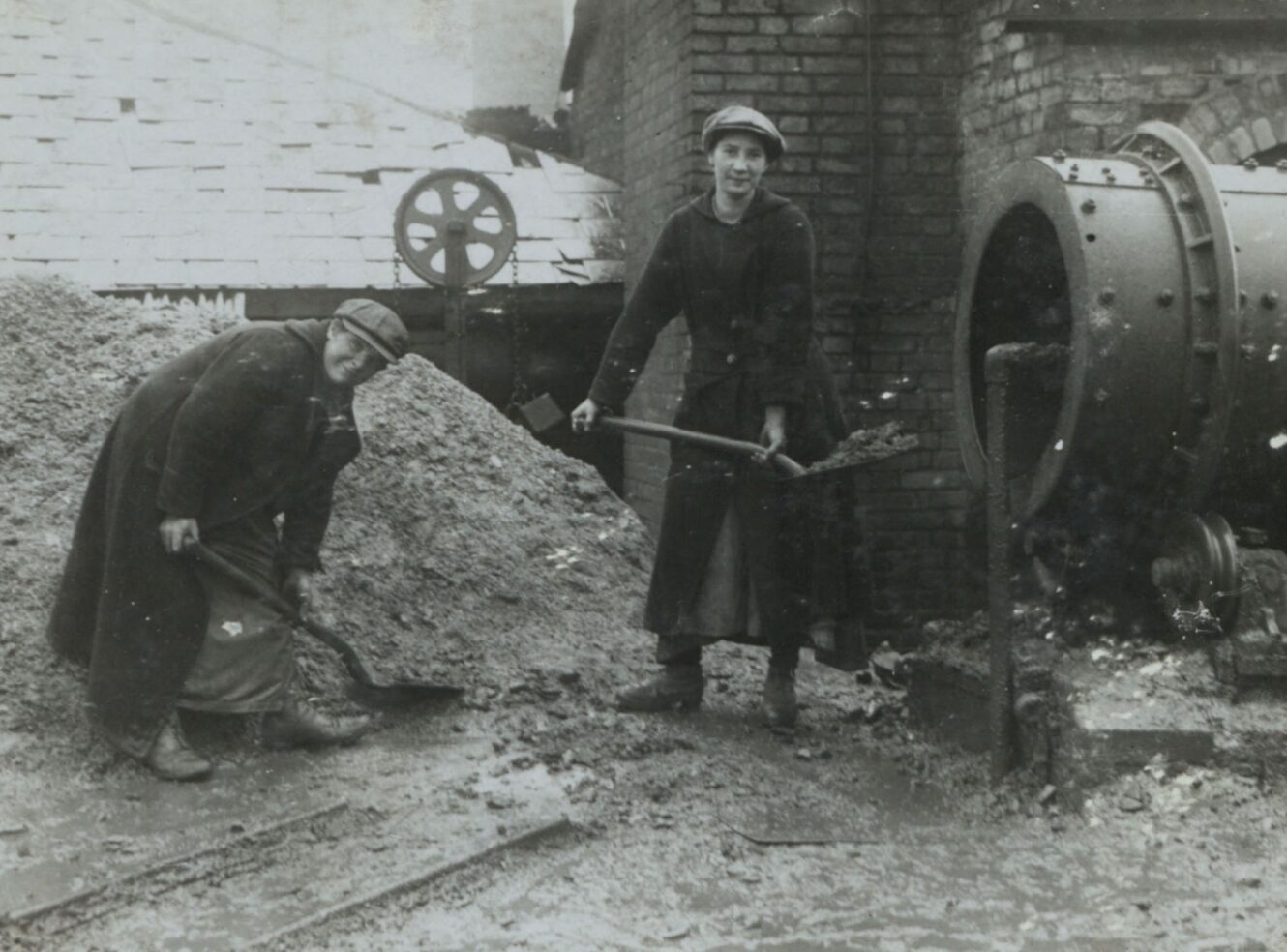 Cement, Chemicals, Bricks and Beer: Women in Industry During the First World War
Cement, Chemicals, Bricks and Beer: Women in Industry During the First World WarWhen we think of the role of women on the Home Front during the First World War, the images which spring to mind are inevitably those of fresh-faced city girls perched precariously on fence posts, wellies on and pitchfork in hand. Think harder and you might also have a vague recollection of countless rows of twenty-somethings handling and packing shell cases in London munitions factories; but what other jobs did women do during the First World War?
-
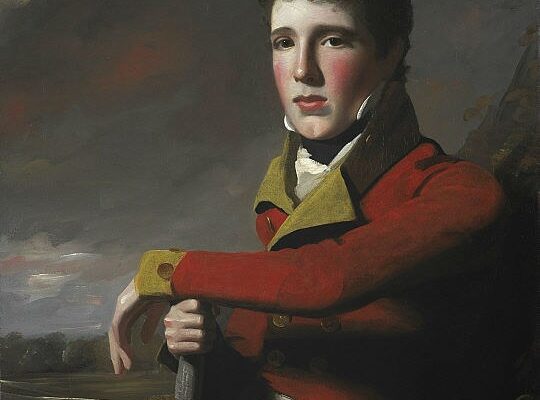 The Conman Cazique of PoyaisOne of the greatest and most brazen of swindles known to man is in fact not very well known by many. Born in 1786, Gregor MacGregor was the author of this delicious duping, and lived a colourful life in which he exhibited all the oleaginous qualities needed to enable a man to put his greed before all else.
The Conman Cazique of PoyaisOne of the greatest and most brazen of swindles known to man is in fact not very well known by many. Born in 1786, Gregor MacGregor was the author of this delicious duping, and lived a colourful life in which he exhibited all the oleaginous qualities needed to enable a man to put his greed before all else. -
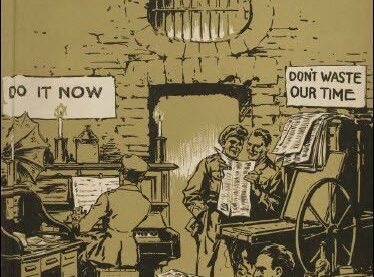 The Wipers Times
The Wipers TimesLast week I had the opportunity of seeing Ian Hislop’s and Nick Newman’s stage play based upon the true story of The Wipers Times, currently showing at the Watermill Theatre, near Newbury, 22 September – 29 October 2016. I also attended an afternoon discussion session where the co-writers were interviewed about their work and answered questions from the audience. The Wipers Times was a trench journal published by British soldiers fighting on the Ypres Salient during the First World War. It became the most famous example of trench journalism in the English-speaking world.
-
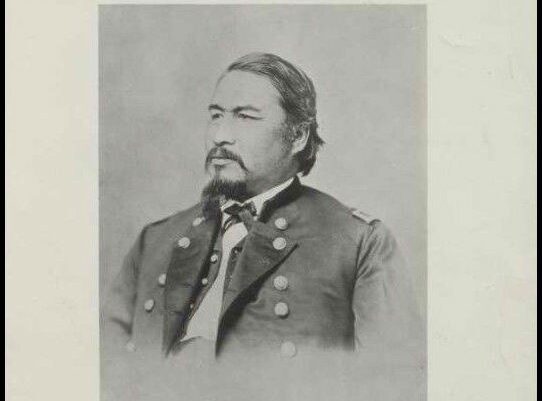 Reviving interest in indigenous languages and traditions with the help of Ely Samuel ParkerLearning that the annual international conference held by the Association of Tribal Archives, Libraries, and Museums, (ATALM) is taking place this week in Phoenix, Arizona, I thought it a fitting time to highlight a sample of the material collated within our recently published resource: Frontier Life: Borderland Settlement & Colonial Encounters, that demonstrate attempts made over 100 years ago to restore both indigenous languages and histories.
Reviving interest in indigenous languages and traditions with the help of Ely Samuel ParkerLearning that the annual international conference held by the Association of Tribal Archives, Libraries, and Museums, (ATALM) is taking place this week in Phoenix, Arizona, I thought it a fitting time to highlight a sample of the material collated within our recently published resource: Frontier Life: Borderland Settlement & Colonial Encounters, that demonstrate attempts made over 100 years ago to restore both indigenous languages and histories. -
 Spectacle of the First World War: A special guest blog by Elizabeth Mantz
Spectacle of the First World War: A special guest blog by Elizabeth MantzOne of the reasons I like the Adam Matthew resources so much is the visual richness contained within each one. The historical value and depth of the primary source content is complemented and augmented by a wealth of accompanying vivid images, many in colour.
-
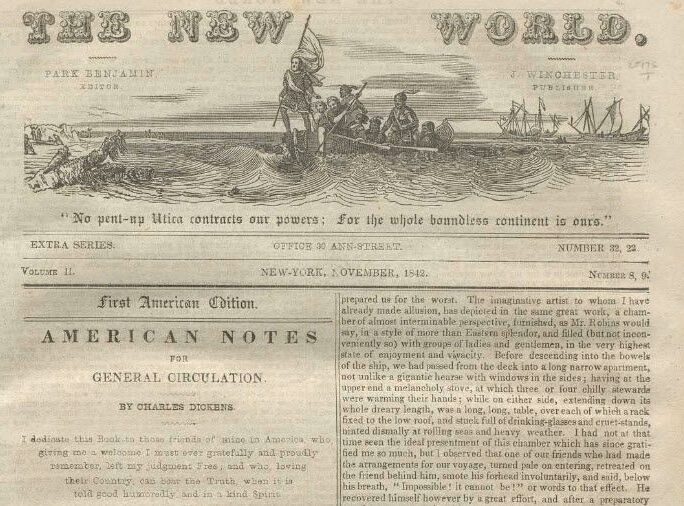 Critiquing a Nation: Dickens' Quarrel with America
Critiquing a Nation: Dickens' Quarrel with AmericaAmerica has been the focus of global news over the last few months due to the almost continuous coverage of the upcoming US Election. The election, while obviously a very hot topic in America, is also of interest to people around the world and, in time honoured fashion, ‘outsiders’ are also sharing their opinions and viewpoints. In 1842, it was my [cue shameless name drop] great-great-great Grandfather, English novelist Charles Dickens, who wrote a commentary on America during his first visit to the country.
-
 GBBO, Betty Crocker, and Baking in GeneralOver the past few weeks we’ve been getting to grips with dramatic Great British Bake Off news. Shock-waves were sent rippling through the country when we learnt that this series would be the final one as we know it. In this office, like in many offices around the country, the reaction ranged from a healthy dollop of dismay to a big helping of speculation. First Mel and Sue announced their resignations and Mary Berry, a few days later, followed suet. (Yes, pun very much intended.)
GBBO, Betty Crocker, and Baking in GeneralOver the past few weeks we’ve been getting to grips with dramatic Great British Bake Off news. Shock-waves were sent rippling through the country when we learnt that this series would be the final one as we know it. In this office, like in many offices around the country, the reaction ranged from a healthy dollop of dismay to a big helping of speculation. First Mel and Sue announced their resignations and Mary Berry, a few days later, followed suet. (Yes, pun very much intended.) -
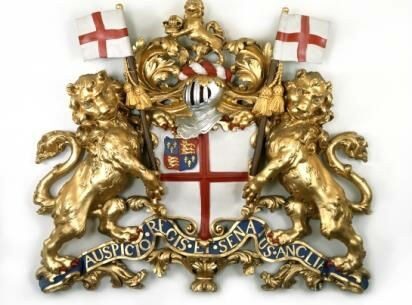 Further Adventures of the Intrepid East India Company Women: A SPECIAL GUEST BLOG BY AMRITA SEN
Further Adventures of the Intrepid East India Company Women: A SPECIAL GUEST BLOG BY AMRITA SENThe three intrepid women, Mariam Begum, Frances (Webbe) Steele, and Mrs Hudson who managed to travel on board East India Company ships in the early seventeenth century, flouting Company prohibition, continued to cause trouble even after the much harried English ambassador, Sir Thomas Roe, no longer had to directly deal with them. Unfortunately for Roe, the journey back to England was not as tranquil as he might have hoped, for Frances and Mrs Hudson were travelling with him.
-
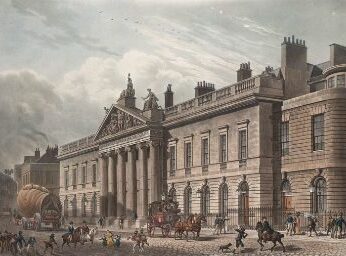 Early Women Travellers and The East India Company: A Special Guest Blog by Amrita Sen
Early Women Travellers and The East India Company: A Special Guest Blog by Amrita SenIn 1617 three unlikely travelers, Mariam Begum, Frances Steele (nee Webbe), and Mrs. Hudson, arrived at the busy port of Surat onboard an East India Company ship called the Anne. What made their journey so exceptional was that during the early years of its operation the Company expressly forbade women from traveling out to the East Indies, despite numerous pleas from its factors and sailors who did not wish to leave their wives behind.
-
 Recreating the music of Shakespeare: “We can’t unhear Lady Gaga”
Recreating the music of Shakespeare: “We can’t unhear Lady Gaga”After the announcement of our project with Shakespeare’s Globe last month, along with the launch of Shakespeare in Performance, attending the World Shakespeare Congress and a visit to the Globe itself to watch Iqbal Khan & co’s latest staging of Macbeth I can definitely say I have got the Shakespeare bug.
